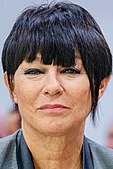| |||||||||||||||||||||||||||||||||||||||||||||||||||||||||||||||||||||||||||||||||||||||||||||||||||||
All 75 seats in the Basque Parliament 38 seats needed for a majority | |||||||||||||||||||||||||||||||||||||||||||||||||||||||||||||||||||||||||||||||||||||||||||||||||||||
|---|---|---|---|---|---|---|---|---|---|---|---|---|---|---|---|---|---|---|---|---|---|---|---|---|---|---|---|---|---|---|---|---|---|---|---|---|---|---|---|---|---|---|---|---|---|---|---|---|---|---|---|---|---|---|---|---|---|---|---|---|---|---|---|---|---|---|---|---|---|---|---|---|---|---|---|---|---|---|---|---|---|---|---|---|---|---|---|---|---|---|---|---|---|---|---|---|---|---|---|---|---|
| Opinion polls | |||||||||||||||||||||||||||||||||||||||||||||||||||||||||||||||||||||||||||||||||||||||||||||||||||||
| Registered | 1,794,316 | ||||||||||||||||||||||||||||||||||||||||||||||||||||||||||||||||||||||||||||||||||||||||||||||||||||
| Turnout | 911,089 (50.8%) | ||||||||||||||||||||||||||||||||||||||||||||||||||||||||||||||||||||||||||||||||||||||||||||||||||||
| |||||||||||||||||||||||||||||||||||||||||||||||||||||||||||||||||||||||||||||||||||||||||||||||||||||
| |||||||||||||||||||||||||||||||||||||||||||||||||||||||||||||||||||||||||||||||||||||||||||||||||||||
The 2020 Basque regional election was held on Sunday, 12 July 2020, to elect the 12th Parliament of the Basque Autonomous Community. All 75 seats in the Parliament were up for election. The election was initially scheduled for 5 April 2020 but was postponed as a result of the COVID-19 pandemic. It was held simultaneously with a regional election in Galicia.
On 4 February 2020, Lehendakari Iñigo Urkullu had discussed holding a snap election within a cabinet meeting, fulfilling a legal requirement previous to any election call and sparking speculation that a regional election was imminent.[2][3][4] Six days later, on 10 February, Urkullu confirmed the election for 5 April, seeking to distance himself from the convoluted political landscape in Catalonia after a 2020 election in the region was announced by Catalan president Quim Torra.[5][6][7] The announcement of the Basque election prompted Galician president Alberto Núñez Feijóo to trigger a snap election in Galicia as well.[8][9] However, on 16 March it was announced that the vote would be postponed for the duration of the COVID-19 pandemic in Spain, shortly after Prime Minister Pedro Sánchez's declaration of a nationwide lockdown in the country starting on the previous day.[10][11][12]
Urkullu's Basque Nationalist Party (PNV) maintained its status as the largest party in the Basque Parliament with its best result since 1984, which coupled to an increase in support of one seat for the centre-left Socialist Party of the Basque Country–Basque Country Left (PSE-EE)—its coalition partner during the previous legislature—allowed Urkullu to establish a majority coalition government. The left-wing regional nationalist EH Bildu topped its best historical result, benefitting from the collapse of the United We Can–United Left (Elkarrekin Podemos) alliance, which lost nearly half its support. The PP+Cs alliance compromising both the People's Party (PP) and Citizens (Cs) lost roughly half of the seats won by the PP in the 2016 election, although Cs entered the regional parliament for the first time with 2 seats whereas the PP was allocated the alliance's remaining 4. The far-right Spanish unionist Vox entered the Parliament for the first time with one seat. Equo was not able to secure parliamentary representation after having won one seat as a member of the Elkarrekin Podemos alliance in 2016.
Cite error: There are <ref group=lower-alpha> tags or {{efn}} templates on this page, but the references will not show without a {{reflist|group=lower-alpha}} template or {{notelist}} template (see the help page).
- ^ "Un exconcejal del PSE y antiguo miembro de UPyD, cabeza de lista de Vox por Bizkaia en las autonómicas". El Correo (in Spanish). 27 February 2020. Retrieved 28 February 2020.
- ^ "El lehendakari baraja el 5 de abril como fecha para las elecciones vascas" (in Spanish). EiTB. 5 February 2020. Retrieved 5 February 2020.
- ^ "El lehendakari ultima un inminente adelanto electoral al pedir la preceptiva opinión a todos sus consejeros". El Mundo (in Spanish). 4 February 2020. Retrieved 5 February 2020.
- ^ "Urkullu sopesa un adelanto electoral en el País Vasco". La Vanguardia (in Spanish). 4 February 2020. Retrieved 5 February 2020.
- ^ "Urkullu ve en el adelanto electoral una vía de escape a la corrupción y el impacto catalán". El Confidencial (in Spanish). 9 February 2020. Retrieved 9 February 2020.
- ^ "Urkullu da por finalizada la legislatura vasca y convoca elecciones para el 5 de abril". eldiario.es (in Spanish). 10 February 2020. Retrieved 10 February 2020.
- ^ "Urkullu adelanta las elecciones vascas al 5 de abril". El País (in Spanish). 10 February 2020. Retrieved 10 February 2020.
- ^ "Feijoo decide hacer coincidir las elecciones gallegas y vascas". La Voz de Galicia (in Spanish). 10 February 2020. Retrieved 10 February 2020.
- ^ "Urkullu y Feijóo coordinan las elecciones para alejarse de Torra y vender estabilidad". El Confidencial (in Spanish). 10 February 2020. Retrieved 10 February 2020.
- ^ "Urkullu suspende las elecciones del 5 de abril apoyado en un informe jurídico que desaconseja su celebración". eldiario.es (in Spanish). 16 March 2020. Retrieved 16 March 2020.
- ^ "Feijóo y Pedro Sánchez coinciden en que se deben aplazar las elecciones gallegas" (in Spanish). Cadena SER. 15 March 2020. Retrieved 15 March 2020.
- ^ "Sánchez deja en manos de Urkullu y Feijóo la decisión de aplazar las urnas". ABC (in Spanish). 15 March 2020. Retrieved 15 March 2020.







